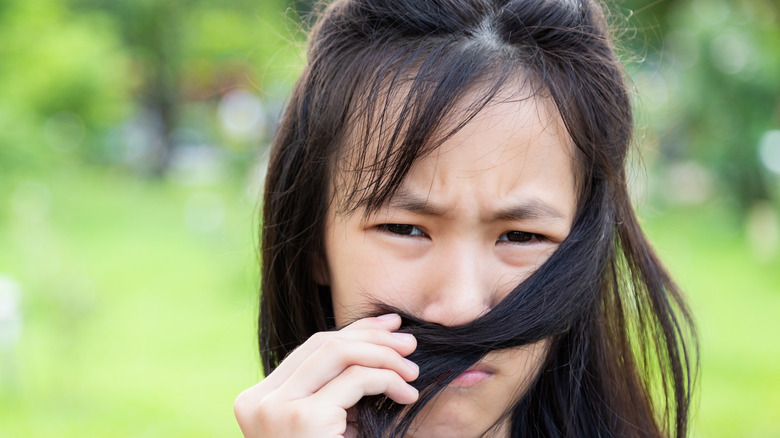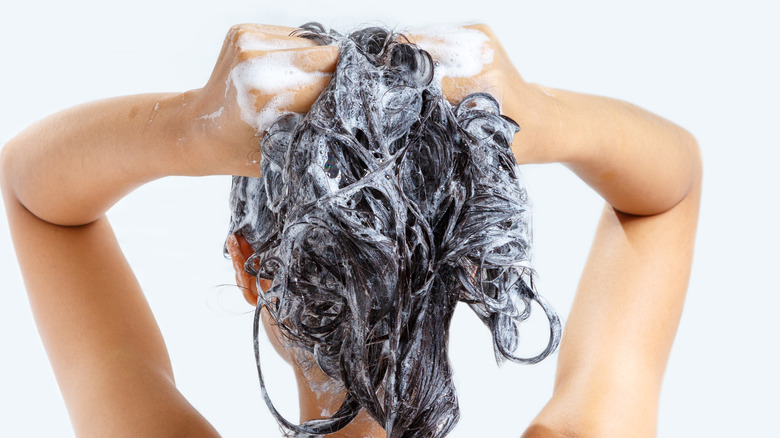What It Really Means When Your Hair Smells
We've all had bad hair days, as well as times when we get a whiff of BO and realize that, uh, it's not coming from the person next to us. But what about when that off-smell is actually (groan) coming from your own head? First of all, don't panic. While clean hair normally doesn't have any scent by itself, smelly hair or scalp can happen for a number of different reasons, and it doesn't necessarily mean that you're a slacker when it comes to personal hygiene (via Verywell Health).
We've all heard that "you are what you eat." But what you eat can affect more than just your health. Kemunto Mokaya, M.D., a board-certified dermatologist in Houston, told Livestrong that "if you eat excessively pungent foods like garlic and onion, or if you have a heavy animal-based diet," it can actually affect the way your skin — along with your scalp and hair — smells. Environmental pollution — like chemicals or smoke in the workplace — can also settle on your hair and scalp and lend its scent. And if you work up a sweat exercising but don't shower soon after, your scalp will retain the sweaty smell until it's washed out (via SkinKraft). There could be other causes for a smelly scalp and hair that are a bit more serious but treatable.
Using an anti-dandruff shampoo may help
Certain skin conditions, such as seborrheic dermatitis and scalp psoriasis, in which there is a concentrated build-up of sebum and dead skin cells, can easily harbor bacteria or fungi that can result in unwanted scents.
If you rub your scalp and realize that your fingertips don't smell very good afterward, there are some simple home remedies that may help freshen things up, as well as calm down any inflammation and sebum build-up (via SkinKraft). Mixing a few tablespoons of apple cider vinegar with two cups of water and rinsing your hair with the mixture after shampooing, may help neutralize the smell, as well as fight unwanted bacteria and result in shinier hair. The same goes for lemon juice in place of the vinegar. Rubbing baking soda or coconut oil on the scalp and letting it sit for a few minutes before rinsing may also help, as could using an anti-dandruff shampoo.
If these home treatments don't work or if you suspect psoriasis or another medical condition, it's time to get some professional help. A dermatologist can prescribe antifungal treatments, topical steroids, or other prescription treatments to help (via Verywell Health).


